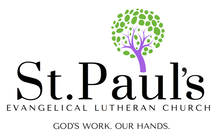Miracle: Faith We spent some of our vacation time last week in Colonial Williamsburg. One of the places we visited to get a taste of life in 18th Century Virginia was the little cabin on the Hope Plantation where slaves would have lived. As we stood outside the door, our interpreter vividly described the subsistence of the enslaved people who might have lived in this house like this one. Inside that bare, sparse cabin the we stood enveloped in the strange contradiction of American history: The people who reasoned and argued so passionately and eloquently for liberty just a few miles away, at the same time, owned and traded other human beings as one might buy, sell and work an animal. Our interpreter wondered though whether there just wasn’t something about us human beings that drives us to divide and separate the world into us and them — our people and the nations, the citizens and the sub-human, the children and the dogs. In the story we just read from Matthew’s Gospel (Matthew 15:10-28), we hear Jesus teaching about what makes people clean or unclean. The keeping and observing God’s law was what distinguished God’s people from the rest of the nations, the gentiles. The law was God’s great gift to the people God rescued and freed from slavery in Egypt, and God’s law as it was lived out by God’s people was intended to be light for the nations — light of freedom, justice and peace. Yet, at the same time, that distinction also made God’s people different from the rest of the world. Maybe no place did this distinction become more apparent than in their diet and the rituals associated with their food — what foods were clean and unclean. As Jesus was teaching the people, everyone was aware of the current state of affairs. God’s people were under the rule and domination of a foreign power — the nations, the Gentiles, the unclean. That powerful, oppressive force not only threatened their physical lives, but their spiritual lives as well. In times like this, to strictly and devoutly observe the dietary laws and rituals demonstrated a of faith and trust in God's gift in direct opposition to the power and customs of their conquerors. Keeping sabbath, observing dietary laws, observing ritual mattered. These were ways to keep faith and resist the powers. But Jesus sees things differently. He argues that the true way to keep and observe all that God commands begins with faith expressed in love for God and love for neighbor that works from the inside of a person, out. What makes us clean or unclean, pure or impure, Jesus teaches, is not what goes through our bodies or what sticks to it on the outside, but what comes flowing out of hearts and minds. The threat to God's people is not external, but it's internal, spiritual. It’s not a matter of eating or not eating, washing or not washing, observing or not observing, but of acting in all things out of faith in God through love. Here is the true treasure and gift of God's law through which God's people become not conquerors but a light for all nations — by God's grace we love and trust God above all things and love our neighbor as we love ourselves. No sooner does Jesus speak these radical, revolutionary and offensive words than we find Jesus crossing the border and entering the land of the Gentiles, and when he arrives a Gentile woman comes rushing across her boundaries to confront Jesus, all the while shouting her confession of faith in Jesus as God’s Christ, and begging for healing and freedom from the demon that is tormenting her daughter. Immediately, we see the implications of Jesus’ earlier teaching. By every external measure — by gender, race and ethnicity, by ritual and religious practice, even by simple geography — this woman stands clearly on the outside from God’s people. She and her daughter are not one of God's people. Only by faith in God through Jesus Christ, driven by her love for her daughter does she break through the barriers and receive God's gift: the irrevocable status as one of God’s children, a citizen of God's kingdom. By the way, I think that is exactly what Jesus was teaching the crowd before.
Now, though, Jesus stands face-to-face with the very word he spoke, and though Jesus and this woman exchange sharp words about children’s food and female dogs waiting for table scraps, we know that so much more has developed. We know that through Jesus God is bringing this world together. Through Jesus' life and ministry, his death and resurrection, God is destroying the wall that separates God’s people from the nations, eliminating every distinction between human beings. The miracle the woman begs from Jesus turns out to be the miracle we all beg and long for -- a release from the demon that oppress us and divide our hearts and homes and world. The miracle of faith in God through Jesus changes and unites and compels us into humbly love and service. These demons and powers still oppress and divide, vex us and threaten us. It’s the news of the this summer, the demonic power that threatens, persecutes and kills those who worship the Christ; the demonic power of violence and retaliation; the demonic power of fear and senseless murder; the stories go on and on and on. It’s not what passes through our bodies or sticks to our bodies that's defiling us, but what is spewing out of our hearts and minds. What comes from the inside, the heart, that's what make us righteous or defiled. Lord Jesus, Son of David, have mercy on us. Set us and our children free from all divisions and hatred; malice and violence. Instead give us hearts to love and serve all, so that all might benefit from the God’s grace in our life, even our unrighteous and violent neighbors. I believe that’s the faith-filled and miraculous prayer of this Gentile woman and mother who by her faith in God through Jesus becomes a child of God. We too have become God’s children through faith in Christ alone. Yet, where in our lives do we look and act like so many of the conflicted men who founded this country — claiming God’s grace and liberty for ourselves, while at the same time denying it to others? From this table we are sent to love and serve all people. We don't go out bearing table scraps for the dogs, though, but with an God's own abundance of grace and mercy, love and reconciliation, humility and hope. This simple teaching, this simple gathering, this simple meal have big implications for the way we live our life, out there in God’s world. Lord Jesus Christ, have mercy on us all and on this whole world. Heal us. Amen. Comments are closed.
|
NewsThe latest news, sermons and commentary on our life in mission together. Archives
May 2021
Categories |

 RSS Feed
RSS Feed
